MercoPress. South Atlantic News Agency
Tag: IMF
-
Friday, September 13th 2019 - 11:47 UTC
IMF remains strongly engaged with Argentina; meeting with officials scheduled for later this month

The International Monetary Fund is continuing talks with Argentina as authorities there try to stem spiraling economic problems in Latin America’s third-largest economy, IMF spokesman Gerry Rice told reporters on Thursday.
-
Thursday, September 12th 2019 - 09:55 UTC
Questions on the role of the IMF in the Argentine financial situation

Despite a history of many IMF rescue programs, Argentina once again faces a deepening financial crisis, raising questions about whether the Washington-based lender made a mistake in its dealings with Latin America's third largest economy.
-
Tuesday, September 10th 2019 - 09:16 UTC
Another lady, Kristalina Georgieva, will become the IMF managing director
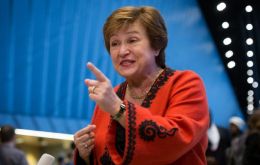
The top executive at the World Bank, Kristalina Georgieva of Bulgaria, now faces no opposition in her candidacy to lead the International Monetary Fund, the fund announced on Monday.
-
Friday, September 6th 2019 - 09:58 UTC
Alberto Fernandez pledges to honor debts as long as it doesn't harm Argentines
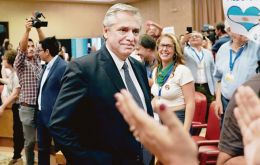
Argentina's likely next president, opposition front-runner Alberto Fernandez, laid out his populist credentials during a visit to Madrid on Thursday, saying local Argentine interests would trump those of creditors and energy investors.
-
Tuesday, September 3rd 2019 - 09:55 UTC
Argentina talking with IMF on monetary targets; Central bank insists the country's financial system is “solid”
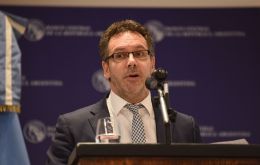
Argentina’s central bank is talking to the International Monetary Fund about revising its monetary policy target for September, the institution’s president Guido Sandleris told reporters in Buenos Aires on Monday.
-
Wednesday, August 28th 2019 - 09:49 UTC
Argentina sold US$ 302 million to support the Peso, exceeding an IMF agreement
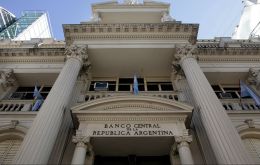
Argentina's central bank on Tuesday exceeded for the first time a guideline on reserve sales agreed as part of its US$ 57 billion standby agreement with the International Monetary Fund, selling US$ 302 million in the foreign exchange market, traders said.
-
Thursday, August 22nd 2019 - 09:44 UTC
IMF wants to lead the way in retirement and pensions reform
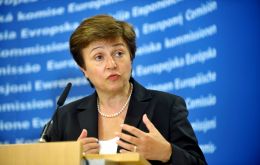
The International Monetary Fund's board on Wednesday recommended a rule change that would scrap the age limit for its leader, clearing the path to the top job for Bulgaria's Kristalina Georgieva.
-
Wednesday, August 21st 2019 - 08:52 UTC
Argentina’s Economic Crisis: Who to blame?
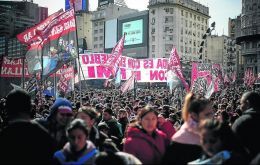
Argentines remember the role the IMF played in the last depression. They also remember the improvement in their lives under Kirchnerism. The following was published by The New York Times.
-
Wednesday, July 31st 2019 - 09:25 UTC
Economic decline of Venezuela since 2013 estimated at 65% by the IMF
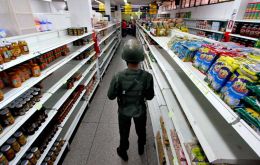
The cumulative decline of the Venezuelan economy since 2013 will reach 65%, among the deepest five-year contractions around the world over the last half-century, the International Monetary Fund has announced.
-
Tuesday, July 30th 2019 - 09:35 UTC
France leading the search for the next head of the IMF
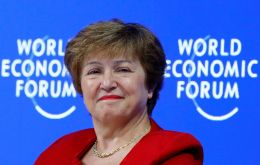
France is seen supporting Kristalina Georgieva to be the next head of the International Monetary Fund as the EU seeks to agree on a single candidate ahead of the lender's Sept 6 deadline, according to several European officials familiar with the deliberations.
